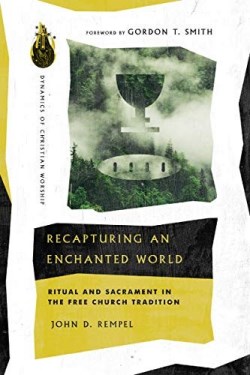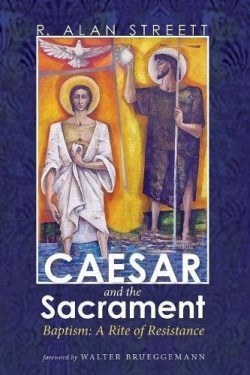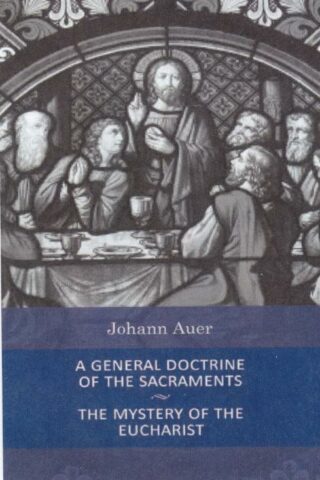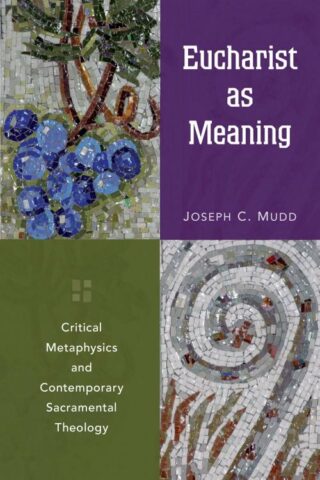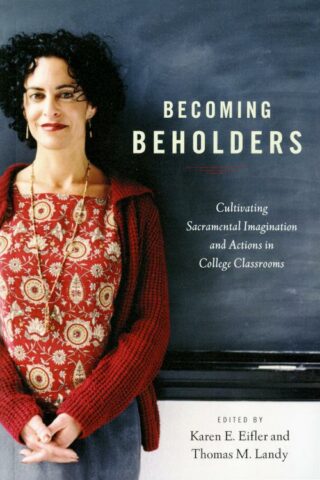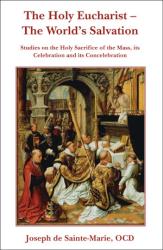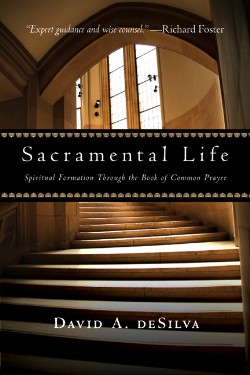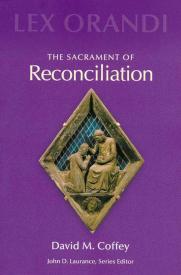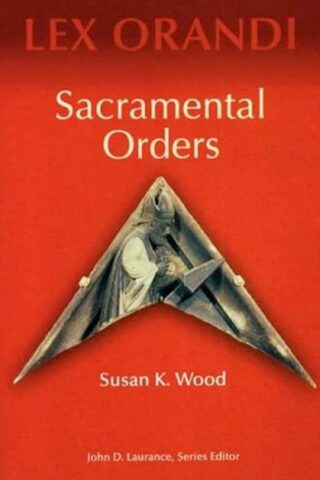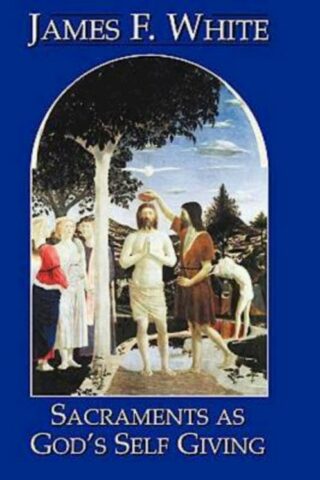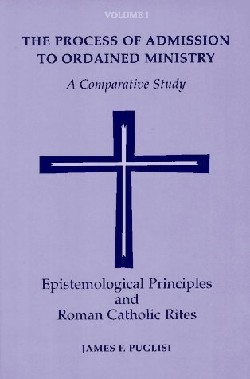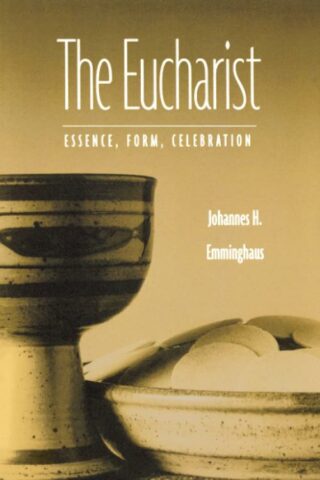Sacraments
Showing all 14 results
-
Meal That Reconnects
$29.95Add to cartIn The Meal that Reconnects, Dr. Mary McGann, RSCJ, invites readers to a more profound appreciation of the sacredness of eating, the planetary interdependence that food and the sharing of food entails, and the destructiveness of the industrial food system that is supplying food to tables globally. She presents the food crisis as a spiritual crisis–a call to rediscover the theological, ecological, and spiritual significance of eating and to probe its challenge to Christian eucharistic practice. Drawing on the origins of Eucharist in Jesus’s meal fellowship and the worship of early Christians, McGann invites communities to reclaim the foundational meal character of eucharistic celebration while offering pertinent strategies for this renewal.
-
Recapturing An Enchanted World
$30.00Add to cartWhile the Free Churches rightly sought to cleanse the church of the abuses of sacramentalism, in that process they also set aside some of the church’s historic practices and theology. In response to this liturgically thin space, Mennonite theologian and minister John D. Rempel considers the role of the sacraments and ritual within the Free Church tradition, helping us perceive the sacramental nature of our faith and worship.
-
Caesar And The Sacrament
$27.00Add to cartWhen the earliest Christ-followers were baptized they participated in a politically subversive act. Rejecting the Empire’s claim that it had a divine right to rule the world, they pledged their allegiance to a kingdom other than Rome and a king other than Caesar (Acts 17:7). Many books explore baptism from doctrinal or theological perspectives, and focus on issues such as the correct mode of baptism, the proper candidate for baptism, who has the authority to baptize, and whether or not baptism is a symbol or means of grace. By contrast, Caesar and the Sacrament investigates the political nature of baptism. Very few contemporary Christians consider baptism’s original purpose or political significance. Only by studying baptism in its historical context, can we discover its impact on first-century believers and the adverse reaction it engendered among Roman and Jewish officials. Since baptism was initially a rite of non-violent resistance, what should its function be today?
-
Eucharist As Meaning
$34.95Add to cartThis study moves beyond postmodern trends in Catholic eucharistic theology by exploring the works of Bernard Lonergan and Louis-Marie Chauvet: “Having learned from both Chauvet’s critique of metaphysics and Lonergan’s development of a critical metaphysics, we hope to offer a fruitful understanding of traditional eucharistic doctrines that is able to respond to some contemporary problems and shed some light on the great mystery that stands at the center of Christian worship” (from the introduction).
Postmodern theologians have been critical of using metaphysics to interpret the presence of Christ in the Eucharist, liturgical sacrifice, and sacramental causality, preferring instead a symbolic approach. Lonergan’s critical metaphysics, however, offers an account of knowing and being that resists attempts to pit metaphysics against the symbolic and moves sacramental theology into the real world of meaning. The result is a theology of the Eucharist grounded in tradition that speaks to today’s believers.
-
Becoming Beholders : Cultivating Sacramental Imagination And Actions In Col
$36.95Add to cartCatholic colleges and universities have long engaged in conversation about how to fulfill their mission in creative ways across the curriculum. The “sacramental vision” of Catholic higher education posits that God is made manifest in the study of all disciplines.
Becoming Beholders is the first book to share pedagogical strategies about how to do that. Twenty faculty-from many religious backgrounds, and in fields such as chemistry, economics, English, history, mathematics, sociology and theology-discuss ways that their teaching nourishes students’ ability to find the transcendent in their studies.
-
Holy Eucharist : Studies On The Holy Sacrifice Of The Mass Its Celebration
$40.00Add to cartThe discipline of the church after Sacrosanctum Concilium, up until the 1982 Code of Canon Law and the General Instruction of the Roman Missal for the third edition of the Missal, has always asserted the freedom of priests to celebrate Mass individually. Despite this assertion, the liturgical and theological atmosphere of seminaries and religious communities has rarely favored this freedom.
In light of this, The Holy Eucharist originally published in French in 1982, explores the practice of celebrating Mass with a single presider versus Mass celebrated through concelebration. This historical and dogmatic critique finds that the practice of concelebration, especially among priests without their Ordinary presiding, is in fact a new development and not a return to an ancient norm. While the author concludes that concelebration has its due place under practical guidelines, the multiplication of Eucharistic celebrations with a single presider would make better use of the infinite riches contained in the Holy Sacrifice.
Published by Gracewing Publishing.
-
Worshiping With The Church Fathers
$27.00Add to cartChristopher Hall invites us to accompany the church fathers as they enter the sanctuary for worship and the chapel for prayer. He also takes us to the wilderness, where we learn from the early monastics as they draw close to God in their solitary discipline. Readers will enjoy a rich and rare schooling in developing their spiritual life in this unique survey of the life of worship from the perspective of the early Church.
-
Sacrament Of Reconciliation
$29.95Add to cartAlthough it did not come from Christ in the form it has today, it is clear from Scripture that reconciliation was central to the ministry of Christ. In The Sacrament of Reconciliation David Coffey examines the theology of reconciliation and addresses the crisis that the sacrament faces in the present pastoral situation of the Church.
Father Coffey calls on Scripture and tradition, to the magisterium, and to theology in his analysis. However, he also moves beyond these to look at the practice of the Church and to the liturgy as it is regulated, celebrated, and experienced. In doing so, he presents a theology of the sacrament of reconciliation that is truly based on, and inspired by, the liturgy. This theology is molded by two contextual factors: the crisis that the sacrament is currently undergoing in the developed nations of the West and the restrictions imposed by Rome on the “third rite,” the most communal of the three forms of the sacrament.
Since the sacrament of reconciliation exists for the forgiveness of postbaptismal sin, chapter one is devoted to a theology of sin. Here, Father Coffey identifies what the main theological cause is at the heart of the present crisis, namely, a serious and widespread confusion about the nature of sin. Chapter two focuses on the Church’s ministry of reconciliation. This chapter provides both essential knowledge and a response to the widely held view that one does not need to turn to the Church in order to obtain forgiveness from God for sin. Chapter three examines the four parts of the sacrament: contrition, confession, absolution, and the prescribed work of penance. The investigation in this chapter suggests theological limits to possible future reforms of the sacrament. In chapter four Father Coffey offers a detailed examination of the three sacramental rites and the nonsacramental service set down by The Rite of Penance. Finally, in chapter five, Father Coffey offers some predictions about the future of the sacrament, based on his study.
-
Sacramental Orders
$29.95Add to cartOrdained ministry cannot be understood by itself or only in its relationship with Christ. It must find its identity in relationship to the Church, for it exists to serve and build up the Church. In Sacramental Orders Susan Wood places the theology of ordained ministry within its ecclesial foundations, identifying four concepts that shed light on different aspects of ordained ministry and its relationship to the Church: a monarchical and hierarchical concept; a eucharistic, collegial model of ministry representing the communion of particular Churches; the priest, prophet, and king, which structures the concept of the Church as the people of God; and a theology of the Church as a sacrament of Christ and ordained ministry as a sacrament of the Church.
Sacramental Orders is a liturgical and theological study of ordained ministry grounded in the liturgy of the 1990 typical edition of the rites. It addresses the three Orders within the one Sacrament of Order: bishop, presbyter, and deacon. By including each order with this study, the interrelationship between the three becomes more apparent, and the theology of one is allowed to inform the theology of the others. Wood points out that one of the challenges in theologies of ordained ministry today is to distinguish a bishop from a presbyter when both are ordinations to the priesthood and presbyters are assuming a greater ministry of oversight as they pastor more than one parish, and to distinguish deacons from presbyters at a time in church history when deacons are assuming more presbyteral functions.Sacramental Orders also focuses on the mutual reciprocity in the relationship between liturgical rite and the theology of the sacrament as explained in ecclesial documents. The ordination rites reflect the theology expressed by Vatican II and yet also present a theology of the sacrament embedded in the liturgical texts and actions.
-
Epistemological Principles And Roman Catholic Rites
$39.95Add to cartOrdination is a complex process that links ministry, local church, confession of faith, and communion. This process is communitarian, liturgical and juridical, and through these traits, sacramental. Father Puglisi explores the notion that Christian (both Catholic and Protestant) ordination cannot be reduced to a simple rite of installation or to the acceptance of a charge, but is an ecclesial process whereby a Christian receives a charisma for the edification of the Church.
Father Puglisi analyzes the liturgical and canonical institutions in three periods (the ancient and Medieval period, the period of the Reformation, and the contemporary period) to recover an understanding of the complex structure of ordination and the implicit connection between ordained ministry and the structuring of the Church. Volume I explores the meaning of the episcopal and presbyteral ministry according to the ordination rituals from the early Church (the apostolic tradition) until the eighth century, and the resulting structuring of the Church. Chapters study documents from that time period and their theological reflection.
Separate volumes will address each of the three periods. A fourth volume will offer an English translation of the liturgical rites examined in the first three volumes. It will also include an extensive bibliography of sources and secondary literature, a comparison of the structure of the two liturgical offices of ordination/installation of a bishop and of a presbyter, of the prayers of ordination or installation, of the examination of the elect and of the use of biblical readings in each of the liturgical rites.
-
Eucharist : Essence Form Celebration (Revised)
$36.95Add to cartThis well-known and respected work on the eucharistic celebration has been updated and revised. The editor Monsignor Maas-Ewerd has incorporated the insights of recent research, updated the bibliography, and re-formulated many passages in light of some important changes in thought and language since the first edition.
The Eucharist: Essence, Form, Celebration helps readers gain an understanding of correct form for celebration of the eucharistic liturgy in light of the renewals of Vatican Council II. It is therefore an “explanation of the Mass,” as Pius Parsch, to whom the first edition was dedicated, understood it. It is an explanation both of the biblical foundations and of the historical development of the liturgy within its two-thousand-year tradition. Thus, Maas-Ewerd maintains that we must inquire into both aspects-Jesus’ foundational intention and the Church’s long tradition of celebrating the Lord’s legacy-to obtain a clear picture of the enduringly valid form of the Mass at all times, including its present realization.
In the foreword to the first edition, Johannes Emminghaus wrote that, despite the many content and language changes since the first edition, Parsch’s fundamental principle was correct, and it remains so today: the essence or nature of the liturgy can only be explained on the basis of Christ’s institution (as witnessed in Scripture) and the traditional teaching of the Church. Its form, in turn, with its many changes and its high and low points, is explicable also through Scripture and history; but the manner of its celebration can only be explained through the form as we know it and especially through the concrete faith of people.
The intent of The Eucharist: Essence, Form, Celebration is practical: it is meant as an aid to an appropriate and responsible celebration of the congregational Eucharist. Readers-those in ministry, teachers, catechists, and members of parish liturgical committees and study groups, as well as those interested in Church history-are invited to an active participation, one that bears fruit because it stems from faith.
Maas-Ewerd maintains that our task now is to live with the renewed liturgy, to integrate it more fully into our lives, and at the same time understand and celebrate it as a sign of salvation and as the Church’s self-expression. The Eucharist: Essence, Form, Celebration encourages this process.


